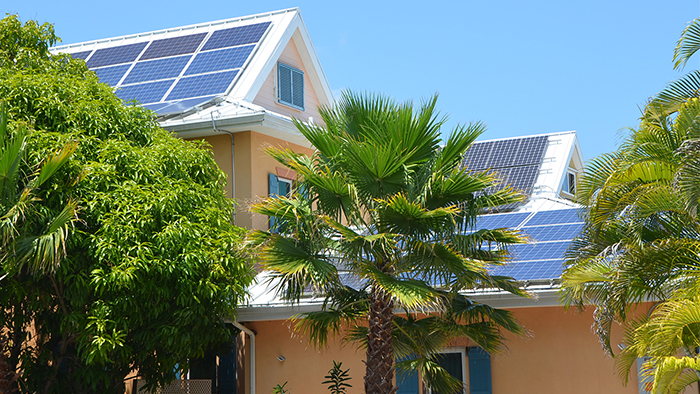As the world seeks cleaner and more sustainable energy solutions, solar power has emerged as a promising contender. Utility-scale solar farms contribute significantly to renewable energy generation while rooftop solar installations are gaining popularity among individuals and businesses. But what is rooftop solar, how does it work and what are the benefits?
What are the benefits of Rooftop Solar ?
01) Distributed Generation:
Rooftop solar presents unique considerations for the electricity grid. The first is that rooftop solar installations introduce distributed generation, where electricity is produced closer to the point of consumption. This reduces transmission losses and can alleviate strain on the grid. Rooftop solar can reduce peak electricity demand on the grid, as solar production often aligns with high demand periods, such as hot summer afternoons.
02) Land Utilisation:
Utilises existing space and reduces land development.
03) Reduced carbon emissions:
Solar power does not produce greenhouse gasses or other pollutants after installation. This combats climate change and contributes to a healthier environment.
04) Increased property value:
Rooftop solar installations can increase property values. Potential buyers are attracted to homes and commercial buildings that come with solar energy since they come with reduced energy costs and a smaller environmental footprint.
05) Versatility:
Solar energy can be used for heating water, powering AC units as well as charging electric cars.
What is Rooftop Solar ?
Rooftop solar is a photovoltaic (PV) system that has its electricitygenerating solar panels mounted on the rooftop of a residential or commercial building or structure.
CUC’s solar programmes also allow rooftop solar owners to receive credit for excess electricity they generate and feed back into the grid. This further incentivizes the adoption of rooftop solar.
Some of the challenges with rooftop solar are that solar requires ongoing maintenance and monitoring to ensure maximum system efficiency and high-quality performance. Not all owners maintain their rooftop solar adequately. Trim back shade trees or closely monitor the system for faults. If not maintained correctly, the stability and reliability of the energy provided is impacted. Rooftop solar is not officially regulated in the Cayman Islands.
In 2019, The Utility Regulation and Competition Office (OfReg) announced that for large scale solar to be offered on Grand Cayman, there would be a competitive bid process for utility scale solar. CUC is prepared to compete to be the most cost effective, skilled and efficient large scale solar provider for Grand Cayman.

